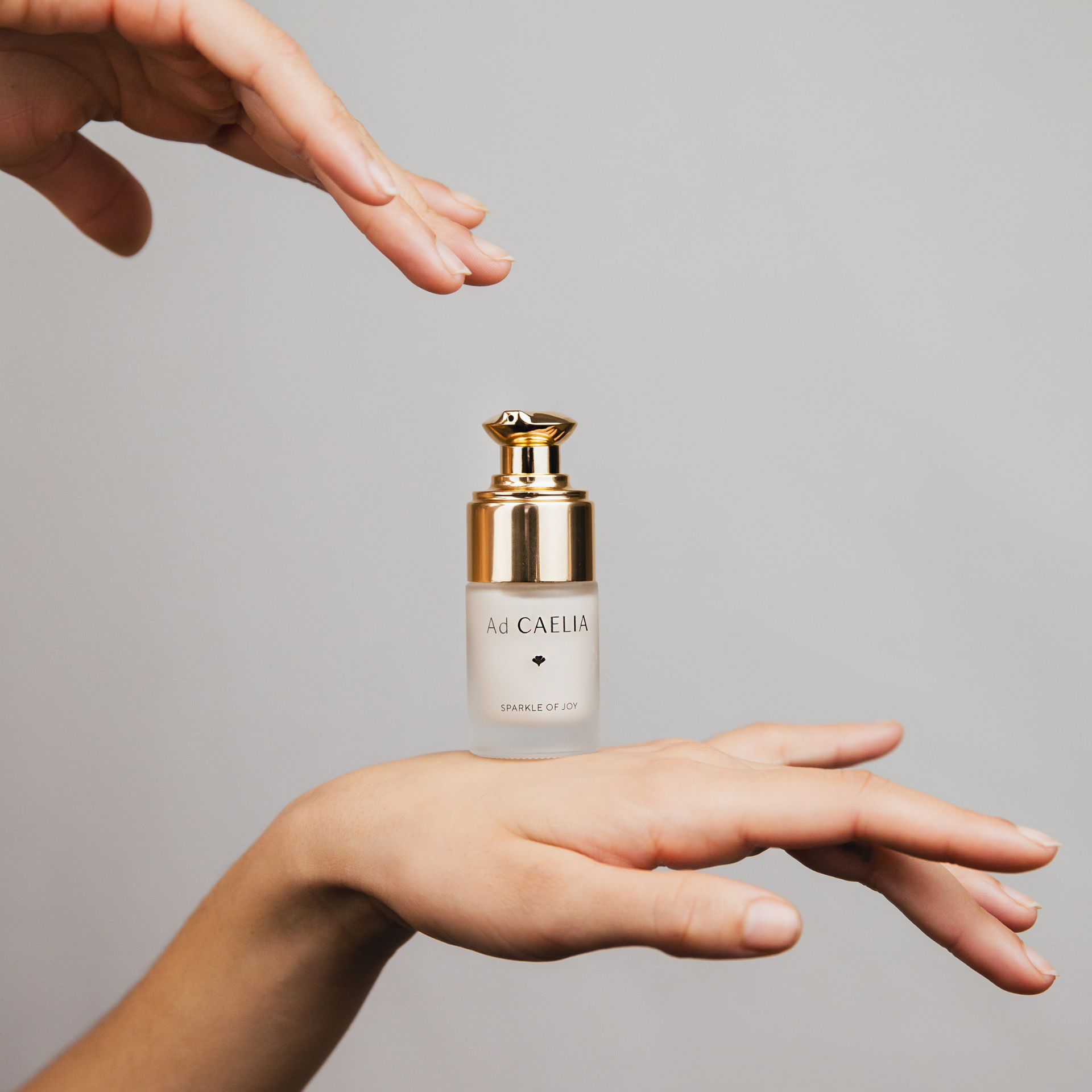
Living well during menopause
Female hormones generally cycle regularly throughout our 20s and 30s, but it's in our late 30s/early 40s that they start to become less consistent, with irregular fluctuations in estrogen, progesterone, and androgens.
Menopause, and the years leading up to it sometimes, have gotten a bad rap because they can be accompanied by a whole host of unwanted symptoms. Yes, the hormonal changes of menopause are real, but these symptoms are actually unnecessary and can be soothed naturally by recognizing and respecting the natural flow of hormones and the body's innate needs.
Phase 1
From 35 to 45 years old until the last menstrual period.
If your hormones are well balanced, you won't have symptoms. But if you start to experience symptoms, it's important to treat them as a preventative measure so that your transition to menopause goes as smoothly as possible.
During this time, be sure to eat a diet rich in micronutrients, prioritize an anti-inflammatory diet (the basis for healthy hormones) and synchronize your physical activity with your 4 phases of the cycle (to learn more, see the articles Feminine Balance 1 and Feminine Balance 2) .
The main additions to be made during this phase are:
- B vitamins: help stimulate the production of progesterone which begins to decline during this period and eliminate excess estrogen
- Magnesium: helps relax the nervous system, fight stress (factor #1 that unbalances hormones), supports the homogeneous synthesis of hormones
- Probiotics: Optimal gut health will make this transition period easier
- Omega-3: Essential for hormonal and nervous balance, these fatty acids help support mood and anxiety.
Other interesting supplements from herbal medicine to balance the body and more specifically the endocrine system: maca, ashwaganda, chaste tree, etc.
Phase 2
From 45 to 55 years old.
During this phase, your hormones decrease to cause you to stop ovulating. If you do not adjust your hormonal imbalance during phase 2, they can start to accumulate and make this phase more and more complicated to live (irritability, hot flashes, weight gain, skin problems, etc.)
Below I share with you some tips to help you navigate through perimenopause and menopause with as few symptoms as possible…
Some advice
1. Relieve the liver
If this organ is overloaded, it does not properly do its purification work which is essential for hormonal balance.
Proper liver function is essential for hormone regulation and metabolism. A lack of liver detoxification can lead to estrogen dominance, which is associated with menopausal symptoms including fatigue, mood swings, hot flashes, and abdominal weight gain.
A liver detox once or twice a year is always a good idea, it will help eliminate unwanted toxins but daily maintenance is of course ideal!
To maintain a healthy liver, eat fresh, raw, natural foods, fruits and vegetables of all colors every day. Drink plenty of water and herbal teas to help flush toxins from the body, aim to reduce substances like caffeine or alcohol, and increase your fiber levels to eliminate excess estrogen. These are simple dietary interventions that can have a significant impact on the functioning of your liver and on your menopause. Reduce portion sizes, chew well, and eat slowly.

2. Incorporate movement
Not only is exercise a mood booster, it is also essential for regulating hormones like estrogen, which has been shown to decrease estrogen dominance and reduce the risk of breast cancer and other related diseases. Exercise increases blood flow and lymph circulation, which aids in detoxification. Find ways to incorporate as much natural movement as possible into your daily schedule (bike, walk more, take the stairs, etc.). Aim for at least 30 minutes of physical activity per day and preferably 3 sessions of 40-90 minutes of exercise per week.
3. Practice anti-stress gestures
Stress wreaks havoc on your hormones and liver. High cortisol and adrenaline levels can cause high blood pressure, anxiety, and directly worsen your menopause symptoms. Try to dedicate at least 10-15 minutes a day to a stress-relieving activity such as meditation, yoga, self-massage, and calming music. We all have time, really, it’s just a matter of prioritizing.
4. Get enough sleep
Sleep is essential for good health and hormonal well-being. It is during the night that the body cleanses, regenerates and restores hormonal balance. Your liver does most of its detoxification between 1am and 3am and being awake compromises this function. A good night's sleep is essential, and for this: avoid caffeine and stimulants after 2pm/4pm and create a relaxing nighttime routine to reduce stress and prepare your body for a good night's sleep. The most important thing to calm the nervous system: stop looking at screens at least 1 hour before bedtime.
Plants and adaptogens
- Ginko Biloba: Ginkgo is known as a tonic herb and helps restore the overall balance of the body. Its antioxidant properties help reduce the number of free radicals which improves blood flow to the brain. It is a brain stimulant that promotes the production of dopamine and acetylcholine (memory, learning, muscles) and can alleviate some of the symptoms of menopause, such as memory problems and brain fog. Ginkgo increases estrogen levels in the body, decreases stress hormones and stimulates ovarian hormones which helps alleviate the symptoms of menopause.
- Maca: Has been used for centuries to help regulate hormones. It does not replace hormones but instead stimulates the body to produce its own hormones and bring them back into a balanced state. Maca adapts to the body's needs and balances the symptoms of menopause; in addition, it increases overall energy and libido.
- Yam: Yam has estrogenic effects and contains natural progesterone which may help balance menopausal symptoms. Its anti-inflammatory properties may also help relieve joint and other pain that sometimes occurs during menopause.
- Sage: Sage stimulates the production of estrogen. It is a natural remedy for hot flashes and excessive night sweats. For those looking to lose weight during menopause, sage is useful because it helps lower blood sugar levels and improves insulin sensitivity. According to several studies, sage also has effects on memory and anxiety. As a herbal tea: about 3 g of leaves in a cup of boiling water, twice a day.
- Soy: Soy isoflavones bind to the same receptors as estrogen and have been shown to reduce menopausal symptoms (hot flashes, osteoporosis, etc.) especially in those with lower estrogen levels. Soy has also been shown to lower bad cholesterol and increase good cholesterol. It can be taken in capsule form.
- Dong Quai: is another phytoestrogenic plant full of nutrients that help relieve menopausal symptoms. It is also used with other plants such as chamomile, red clover and ginseng to improve its effectiveness. It can be drunk either as an infusion 2 to 3 cups per day, or in capsule form with a week's break once a month.
- St. John's Wort: contains active ingredients that have been scientifically proven to treat depression and stabilize anxiety, symptoms sometimes present at the time of menopause. It has also been shown to be effective in soothing hot flashes and night sweats. Can be taken as an infusion, about 2 tsp. per 150 ml of water, 2 or 3 cups per day or in capsule form.
- Valerian: Menopause can cause sleep disturbances in women and this herb is a great remedy for insomnia as it is known for its sedative effects and can therefore help calm the body to promote a good night's sleep. It has also been shown to help relieve hot flashes. Sip 1 or 2 cups in the evening.
- Ginseng: contains phytoestrogens that help regulate the symptoms of menopause. It also includes a substance called "ginsenosides", which provide energy for the whole day, helping to combat chronic or temporary fatigue. Take 60 to 80 mg in the morning for 1 month.
Be careful with mixing with allopathic medicines as well as with grapefruit juice or grapefruit seed extracts. Talk to your doctor.
Let's not forget that nature is a healer, it provides us with everything we need to (re)find balance. And menopause is a natural passage in a woman's life, there is no need to live it badly! Let's listen to our body, and accompany it rather than going against the grain with a lifestyle that is not compatible with the needs of our dear hormones...
Take care of yourself.





Leave a comment
This site is protected by hCaptcha and the hCaptcha Privacy Policy and Terms of Service apply.